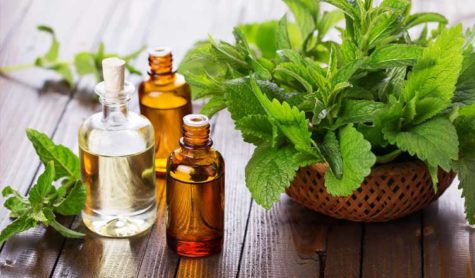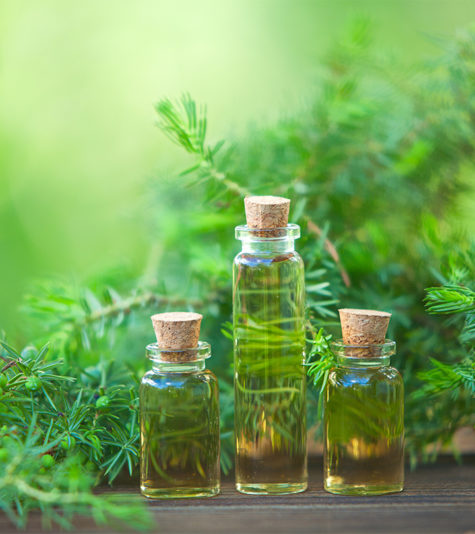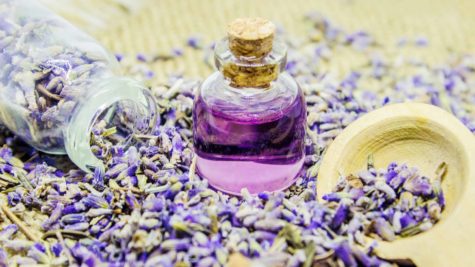Healing
How To Use Lemon Essential Oil
Lemon essential oil is a great oil to have on hand next to your diffuser year round. A cheerful scent with a delicious sweetness, its ability to uplift the mood is almost unparalleled. Not only will Lemon uplift the mood, but it will also purify the air in the home and in the workplace.
- Freshen Up Blend: In your diffuser, mix Lemon oil, Lavender oil, Neroli oil and Tea Tree oil to freshen and purify the air.
- Direct Palm Inhalation: To receive the cheerful, invigorating effects of our pure Lemon oil, inhale Lemon mixed with Lavender.
- This is a great pick-me-up: Try it instead of reaching for a cup of tea or coffee.
Lemon Oil Precautions
Like many citrus essential oils, Lemon oil is phototoxic. This means that when an essential oil is applied topically, exposure to sunlight (UV rays to be exact) causes the skin to become hyper-sensitive and burn much more easily. It is recommended to stay out of direct sunlight for at least 12 hours after using Lemon oil on the skin.
Other Ways To Use Lemon Essential Oil
- Massage Blend:
Use a drop or two in your massage essential oil blend and carrier oil if your intention for the healing session is invigorating and uplifting. Lemon helps to clear the way for new emotional patterns to develop. Please note safety considerations (above) before applying Lemon essential oil to skin.
- Household Cleaner:
Add Lemon essential oil to water in a spray bottle and use as a cleanser to purify surfaces in the home and workplace. Add a drop or two to the laundry cycle for a fresh effect.
- For Pain Relief
A natural way to reduce pain signals in the brain was found with Lemon oil aromatherapy. The study, published in 2002, was conducted on lab rats during a persistent experience of pain; the rats that inhaled the aroma of Lemon oil showed a decrease in behaviors indicative of pain.
- Enhance Mood & Concentration
If you have ever deeply inhaled the scent of Lemon oil, you’ve probably noticed that it has a stimulating, and yet calming, influence in the mind. In an effort to better understand the relationship between smell and mood, researchers examined the psychological and physiological impact of smelling either Lemon oil, lavender oil, or plain water before and after experiencing a stressor.
Of the 56 healthy volunteers, those that smelled Lemon oil reported increased positive mood – despite having their hands plunged in ice water! The researchers also measured stress hormones and found that norepinephrine, which plays a role in cognition and learning, was maintained at elevated levels after inhaling Lemon oil.
- Lessen Stress & Anxiety
One of the great paradoxes of Lemon oil is its ability to invigorate and relax. In addition to its anti-depressant and cognition-boosting qualities, Lemon oil aromatherapy was shown to calm the nerves and relieve stress in two separate studies.
- Lose Weight
It may seem like a bold statement, but Lemon oil can actually help you lose weight by suppressing weight gain, dissolving body fat, and reducing appetite. This was demonstrated in a study where exposure to a blend of Lemon oil and Grapefruit oil aromatherapy increased reduced body weight in lab rats.
- Alleviate Morning Sickness
A clinical trial from 2014 examined the effects of Lemon oil aromatherapy on pregnant women who suffer from morning sickness. Involving more than 100 participants, the study determined that inhaling Lemon oil as soon as feelings of nausea were present had the effect of drastically reducing queasiness and retching as well as an overall decrease in the intensity of those symptoms.
From:
Essential Oils for Abdominal Pain
Abdominal pain should be checked by a doctor if it persists and increases in intensity because it could be appendicitis or another condition that needs to be properly diagnosed.
Upper Abdominal Area:
Apply the following oil over the painful area in a clockwise direction:
- 3 drops Peppermint
- 2 drops Clove
Dilute in 1 teaspoon vegetable or carrier oil.
Other essential oils that could be used include the following: Angelica, Anise, Chamomile, Coriander, Eucalyptus, Fennel, Marjoram
Lower Abdominal Area:
Apply the following oil over the painful area in a clockwise direction:
- 2 drops Thyme
- 3 drops Eucalyptus
Dilute in 1 teaspoon vegetable or carrier oil.
Other essential oils that could be used include the following: Geranium, Ginger, Patchouli, Peppermint, Rosemary
Source: Complete Book of Essential oils and Aromatherapy
Peppermint Essential Oil
Peppermint has been used by many ancient cultures, including the Egyptians, Chinese, and American Indians, no doubt because of its extremely useful health-promoting properties.
- Application:
Diffuse. Massage on the stomach or add to water or tea for supporting normal digestion. Apply to bottom of feet or rub on the temples to treat headaches. To improve concentration, alertness, and memory, place 2 drops on the tongue. Add to food as a flavoring and preservative. Add a drop or two to a bottle of water curb appetite, and for a cooling refreshment on a hot day.
- Fragrant Influence:
It is purifying and stimulating to the conscious mind.
- Safety Data:
If pregnant or under a doctor’s care, consult your physician. Avoid contact with eyes, mucus membranes, or sensitive skin areas. Do not apply “neat” to a fresh wound or burn.
Peppermint is one of the oldest and most highly regarded herbs for soothing digestion, and has been extensively studied for it’s effect on the liver and respiratory systems. Peppermint has also been researched for it’s role in affecting impaired taste and smell when inhaled, and it’s ability to improve concentration and mental accuracy.
One study examined peppermint’s ability to directly affect the brain’s satiety center which triggers a sensation of fullness after meals.
It is an excellent digestive, it helps the respiratory system and circulation, it is an anti-inflammatory, and an antiseptic. These qualities make it a good oil in the treatment of indigestion, flatulence, bad breath, flu, catarrh, varicose veins, headaches and migraines, skin irritations, rheumatism, toothache, and fatigue. It even keeps mice, fleas, and ants away.
If you chew on a Peppermint leaf and then suck in air, a distinct cooling effect will be felt in your mouth. This cooling effect is from the presence of menthol, which is useful in making cosmetics and body-care products.
Peppermint oil is extremely useful when you are hot either from a hot fever, hot flashes, or hot weather. Inhaled it cools a fever, decongests the sinuses, calms the mind, soothes a headache, acts as an antidepressant, stimulates the nervous system and mind, also calms the tendency for your mind to race.
- External Uses
Peppermint oil is used as an antiseptic to wounds and sores (use only in a very diluted form), as a chest rub for respiratory diseases (use in a blend of oils or fats), as a skin cleanser (hydrosol or water spray), and in rubs for aching muscles and limbs.
- Internal Uses
Peppermint oil has a proven reputation to cure nausea and vomiting. One drop on a sugar cube sucked slowly, or two drops in 8 ounces of water and slowly sipped.
Always use Peppermint oil diluted, as it can burn and irritate when used neat. Peppermint oil in a lotion has an interesting feature in that it cools while it warms. The menthol increases blood flow wherever it is applied, soothes while it gives a cooling feeling. Try it as a muscle rub for tired feet.
Peppermint oil can also be added to water and given to both pets and people to cure flatulence. One or two drops of peppermint oil per 6 oz of water should be sufficiently strong enough to cure the problem.
Collected from various sources
Tea Tree Essential Oil
The Aborigines have been using this indigenous Australian tree in their medications for centuries and today tea tree is the subject of a great deal of international research. Highly regarded as an antimicrobial and antiseptic essential oil. It has high levels of terpinenol, which is the key active constituent.
- Application:
Diffuse or apply topically. Safe for use on children and pets.
- Fragrant Influence:
Promotes cleansing and purity.
- Safety Data:
If pregnant or under a doctor’s care, consult your physician. Repeated use can possibly result in contact sensitization. Tea tree oil should not be ingested in large amounts due to its toxicity and may cause skin irritation if used topically in high concentrations.
Its impressive antiviral, antibacterial, and antifungal properties make it useful in a wide range of conditions. It is used in the treatment of candida and all sorts of infections, for ringworm, sunburn, acne, athlete’s foot, toothache, and pyorrhea, among other things.
Tea Tree oil is steam-distilled from a particular type of Australian tree, Melaleuca alternifolia. Tea Tree oil was introduced it to the Western world via Captain Cook in 1770. This is one oil that most definitely will get lots of use in your medicine chest and should positively be part of the home first-aid kit.
It is used externally on deep wounds, road burns to dislodge dirt and bacteria, cuts, scratches, abrasions, sunburn, insect bites, any sort of pruritis (generalized itching of the sensory nerve endings), burns and scalds, herpes lesions, ringworm, lice and tick bites, eczema and psoriasis, thrush, candidiasis, head and pubic lice, athlete’s foot, fungal infections, treatment of staph sores, boils, pimples, acne, halitosis, stinky feet, sinus congestion, etc…
Very sensitive skin, or skin in sensitive areas may need the oil diluted, but generally this is used “neat.”
The scent is strong, clean, and powerful – maybe too powerful. Even though it cures “hot spots” on pets due to skin disease and fungus, some pets hate the scent and will run the moment the bottle is opened.
Tea Tree oil is 4 to 5 times stronger than household antiseptic. Its bacterial action is increased where blood or pus is present. Externally used on deep wounds and cuts it will remove necrotic tissue and leave a healthy surface.
Tea Tree is a powerful killer of all sorts of bacteria. It is non-caustic to the skin, non-toxic to the body, ti produces no negative side effects, it is a natural solvent (may dissolve some plastics(, it has strong cleaning capabilities, it has a well-balanced pH level, it is mildly anesthetic and very aromatic.
The oil is best applied externally but can be taken internally (with care and in very small amounts). Inhaled, it cleanses the air and purifies the respiratory system and so is useful for disease of the respiratory system.
Collected from various sources
Lavender Essential Oil
Lavender oil is a natural antibiotic, antiseptic, antidepressant, sedative, and detoxifier which promotes healing and prevents scarring, and also stimulates the immune system and contributes to the healing process by stimulating the cells of a wound to regenerate more quickly.
- Application:
Diffuse or apply topically. Has a wide range of uses. Apply where you would use a deodorant. Safe for use on small children. May also be added to food or soy/rice mil as a dietary supplement.
- Fragrant Influence:
Calming, relaxing, and balancing, both physically and emotionally.
- Safety Data:
If pregnant or under a doctor’s care, consult physician.
Lavender is capable of many important jobs and is a delight to use. Every home should have a bottle of lavender, if no other oil, because it is so very effective in the treatment of burns and scalds. Lavender is beneficial for cleansing cuts and wounds and is ideal for skin care, since it prevents the build up of excess sebum, a skin oil that bacteria feed on. Lavender has also been clinically evaluated for its relaxing effects.
Although not known specifically as a circulatory stimulant, lavender oil certainly seems to allay the effects of clinical shock and as a mood tonic and antidepressant it helps to deal with the psychological shock of injury.
The French scientist Rene Gatefosse was the first to discover lavender’s ability to promote tissue regeneration and speed wound healing when he severely burned his arm in a laboratory accident. Today, lavender is one of the few essential oils to still be listed in the British Pharmacopoeia.
It also has a multitude of other qualities which make it a truly indispensable oil. This is one of the oils that should be on your number one list – and particularly of use in a first aid kit and for children and pets. It is good for camping because it repels fleas and flying creatures like mosquitoes.
Collected from various sources








